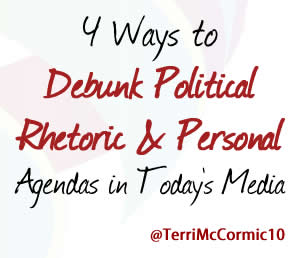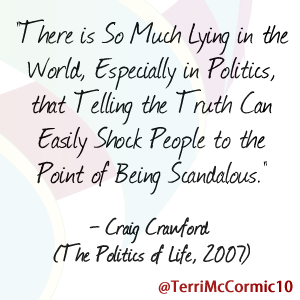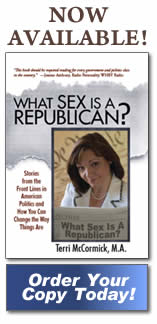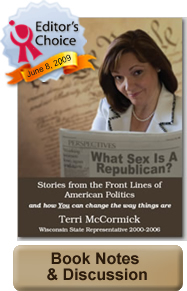
Today, more than at any time in our nation’s history, the people have the opportunity to turn off the noise and research their own issues, candidates and political parties.
The American people now have the wherewithal to demand the news from credible sources from all mass media forms.
Whether you get your news from television, radio, Internet blogging or electronic news media, being informed is up to you.
The quality of our government depends on it.
1. Print Medium
Consider the source. Please look at a news story with an eye to ensuring that the basics—who, what, where, when, why—are there. You may be shocked and surprised to find that many journalists do not cover basic elements of the story.
Fewer use the required two sources of information when writing their stories. Be sure that source information is quoted so that you may “consider the source.” Finally, if the news story editorializes or uses shock news, know that you are about to read a biased article.
2. Television News
Use the television station’s Web site to verify all news with credible sources and the same rules as above. The rule of thumb of most news stories, particularly on television, is “If it bleeds, it leads” on the evening news. The thirty-second sound bite is considered too long for a television news program.
Be wary of the news anchors who do not read credible news stories in a professional tone but who instead present the news with an “Aw, shucks, that shouldn’t of happened; that was mean” demeanor. Real journalists on television speak with appropriate syntax and diction, and they read well-researched and sourced news stories to their viewers. Watch the comedy channel if you want to be entertained.
3. Radio News
Real news on the radio should not be confused with “shock jocks.” When a talk-show announcer or radio newsperson is a journalist, he or she will share sources, credit those sources and have the ability to understand complex issues. He or she will be so clear in the intent to report the news in a credible, reliable and meaningful way that you will understand the who, what, where, when and why of the story.
A shock jock’s job, on the other hand, is to sway you and sometimes manipulate your way of thinking. Don’t be fooled or suckered into believing that shock jocks are giving you an unbiased news story. These entertainers on the radio have a personal or professional agenda.
4. Blogs and Internet Stories
Use credible news sources if you are researching the news on the Internet: Reuters, Wall Street Journal, New York Times, major news publications and research institutes would be my first pass. Local network news may work for a local slant on the news, but be sure that the local journalists understand the difference between opinion and credible journalism. On the very bottom of the journalistic totem poll is the blogger.
This is not a worthy source for your news. Bloggers are in the opinion business, with no apparent ethics or professionalism required. Often, bloggers vent from the shadows and attack others for sheer enjoyment. On rare occasions, you may find a blogger who has credible things to say, but overall, stick with Reuters or the Wall Street Journal as credible news sources.
Remember to consider the source of the information, and when it doubt, please use the Society for Professional Journalists Code of Ethics as your guide (it can be found at www.spj.org/ethicscode.asp). Journalists must abide by the same conflict of interest and ethics codes as public officials. Personal bias and personal agendas are not acceptable. Marketing departments should not reward political candidates during election time with dollars to buy air time. Pay-for-play politics can pollute our free and appropriate press, just as assuredly as it pollutes public policy.
…To continue reading this book, get your copy of “What Sex is a Republican” in paperback or Kindle edition on Amazon.


 Campaigning is tough business. It takes someone with a lot of inner strength, a lot of community connections and a bit of money to make a solid run for office. Those of us who run “grassroots campaigns” understand just how difficult the road is for those who play by the rules. Yet there exists a breed of politician who does not follow the same road. This chapter is not about political corruption as an ending. Rather, it openly discusses old-style politics as a beginning, reveals the tactics of dirty campaigns and offers voters a strategy to determine a good candidate. It’s an appeal to all of us to do something about it!
Campaigning is tough business. It takes someone with a lot of inner strength, a lot of community connections and a bit of money to make a solid run for office. Those of us who run “grassroots campaigns” understand just how difficult the road is for those who play by the rules. Yet there exists a breed of politician who does not follow the same road. This chapter is not about political corruption as an ending. Rather, it openly discusses old-style politics as a beginning, reveals the tactics of dirty campaigns and offers voters a strategy to determine a good candidate. It’s an appeal to all of us to do something about it!

